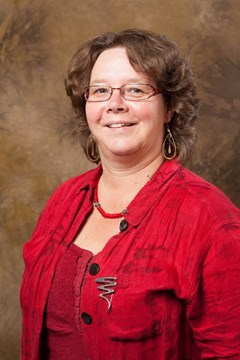The Geography of Star Trek

The Geography of Star Trek/HNRS401H3-002
Thursday, 2:00 - 4:45 p.m., FALL 2024, in GEAR 243
Application Deadline:
Sunday, March 10 at 11:59 p.m.
“Beam me up Scotty” “He’s dead, Jim”. Even if you’ve never seen an episode of Star
Trek, the chances are that you’ve encountered one of its signature phrases. In the
over fifty years since it first aired, through syndication and the constant creation
of new content, the show has become a cultural touchstone not just in the US, but
throughout much of the rest of the world. Since 1966, the franchise has gone boldly
into the geography of an imaginary frontier, exploring new worlds, contacting new
civilizations, and expanding the reach of the United Federation of Planets.
In this class we will examine Star Trek as a source of entertainment, but also as
a reflection of our contemporary world, a world that was created by the Enlightenment,
19th century British imperialism and the expansion of the American Empire in the 20th
century. The geography of the Federation is the geography of planets, solar systems,
and fictional political entities; empires, hegemonies, coalitions, republics and alliances,
each of which reflects the geopolitics and political units of a world in which the
United States was, and continues to be, a dominant power.
Over the course of the semester, we will use excerpts from all the TV shows and films,
with readings from academic work on the importance of Star Trek as a cultural and
political text to examine the political and social geography of the messages that
are embedded in the text and subtext of the show. Whether deliberately, or through
their own unconscious, and conscious, biases, the creators, writers, showrunners,
and performers have used Star Trek to both support and subvert the cultural and political
norms of the late 20th century and early 21st century. In learning how to critically
examine Star Trek, the class will not only gain a greater understanding of contemporary
worlds society and politics, but also a greater understanding of how that world is
influenced by the media that saturates our lives.
Course Credit:
- All-students: 3 hours of honors credit
-
Fulbright College:
- Fulbright Honors social science colloquium
- Three hours of upper-level honors credit in Geosciences
- Three hours of upper-level honors credit in Gender Studies
-
College of Education and Health Professionals: Three hours of upper-level honors credit
About the Faculty
 Fiona Davidson, associate professor, Director of European Studies Program, geosciences, Fulbright College of Arts and Sciences. Davidson is a native of the west of Scotland, and is an associate professor in the
Department of Geosciences. She is a political and cultural geographer who received
a BA from the University of Northumbria and MA and Ph.D. degrees from the University
of Nebraska. She initially undertook research in the political geography of European
nationalist movements but more recently has focused on the geography of US Presidential
Elections and the geopolitics embedded in contemporary media. Her particular focus
is the geopolitical subtext of science fiction, especially Star Trek and she is the
author of multiple academic articles and book chapters on the subject. Her current
work is on the ways in which the United Federation of Planets is an extension of the
Anglo-American Empire.
Fiona Davidson, associate professor, Director of European Studies Program, geosciences, Fulbright College of Arts and Sciences. Davidson is a native of the west of Scotland, and is an associate professor in the
Department of Geosciences. She is a political and cultural geographer who received
a BA from the University of Northumbria and MA and Ph.D. degrees from the University
of Nebraska. She initially undertook research in the political geography of European
nationalist movements but more recently has focused on the geography of US Presidential
Elections and the geopolitics embedded in contemporary media. Her particular focus
is the geopolitical subtext of science fiction, especially Star Trek and she is the
author of multiple academic articles and book chapters on the subject. Her current
work is on the ways in which the United Federation of Planets is an extension of the
Anglo-American Empire.